Who Is Risa Hoshino?
Who Is Risa Hoshino?
Toggling seamlessly between bikini and lab coat, Dr. Risa Hoshino’s Instagram persona embodied the millennial feminist: a pediatrician treating covid patients on the front lines who could still show off her body and build her profile as a lifestyle influencer. A vaccine advocate who collaborates with nationally renowned physicians, yet also finds time to talk about her favorite lipstick stain. A physician who manages to create science-education content for free in her downtime, then complains about being so underpaid and overworked that she asks her followers to contribute $5 each to her personal “coffee fund” (hundreds of her followers obliged).
After Dr. Hoshino unsurprisingly grew her Instagram to 113,000 followers in a year-and-a-half, Medical Marketing + Media dubbed her one of “The top 12 physician influencers” on that platform. Beckers HR called her a "top 10 physician influencer" and The Scientist lauded her as "a veteran of using social media to debunk scientific falsehoods.”
The only problem? She crafted her entire “covid health hero” persona on half-truths and exaggerations.
If you’ve been active on social media during the pandemic era, you may have noticed doctors and public health experts rising from obscurity and swiftly developing large followings. Posting prolifically about masks, vaccines, and other covid-19 mitigation measures, these physicians and scientists flaunt their credentials including the prestigious institutions where they studied, establishing their credibility and, in turn, their respective brands as serious authoritative voices. A posed profile photo in a white lab coat (stethoscope optional) often helps add a final veneer of gravitas.
These doctors, who mark themselves with hashtags such as #medtwitter or #tweetiatrician, almost exclusively push a narrative emphasizing the dangers of Covid-19 infection, even among children who are statistically at very low risk. At the same time, their social media posts minimize any potential harms or side effects from either non-pharmaceutical interventions – such school closures or masking toddlers – or vaccines.
A corporate media invested in promoting a government public health narrative plagued by inconsistent messaging, combined with an ever-growing reliance on smartphones and other devices, created a perfect environment for these social media medical personalities to thrive.
Enter the Instagram Doctor, MD: Youthful, often conventionally attractive, always prepared to answer your questions. Their social media feeds burst with the concise messaging and advice laypeople craved throughout the pandemic, presented in simple terms with colorful infographics, catchy taglines, and viral hashtags.
Dr. Hoshino is a typical case. Hoshino had been building her brand since mid 2020, focusing primarily on Instagram until March 2022, when Twitter began aggressively promoting her tweets such as the one shown below. She describes herself in her Twitter bio as a board-certified pediatrician in Public Health and “vaccine expert.” Her posts depict a stylish young physician, exhausted from heroic work treating covid patients on the front lines.
Dr. Hoshino issues frequent complaints about a litany of indignities: being overworked, disrespected by patients, mistreated by hospital administrators, “bullied” by “anti-vaxxers.”
On March 8, 2022, for example, she tweeted: “I believed this in residency and believe it even more now: the hospital admin does not give a f%€% about us. We are expendable.”
Hoshino’s posts adopted an increasingly frantic tone over time. She repeatedly warned about the high frequency of “long covid” in her patients, begging the public to wear masks and get vaccinated.
These posts garnered thousands of likes, retweets, and comments; parents responded by promising to vaccinate their children, and to continue wearing masks in a show of vigilance to stop the spread of covid.
But Hoshino’s tweets and Instagram posts failed to jibe with either empirical data or anecdotes from many other pediatricians. Her desperate complaints about exhaustion and misery juxtaposed unconvincingly with Instagram posts featuring her out for drinks with friends or posing for glam shots in what appeared to be an impeccably decorated home office.
It all seemed dubious. Initially questioning even her status as a licensed physician, I sought to investigate where she worked and how many pediatric covid patients she was really treating.
I began with a quick internet search, usually sufficient to confirm an active physician’s practice details in a few clicks. Instead of confirmation, I found confusion. Dr. Hoshino’s LinkedIn profile identifies an affiliation with Mount Sinai hospital but includes no dates, and the hospital’s website does not list her. Other sites, such as Vitals.com and WebMD, list Mount Sinai as Hoshino’s office location. If you dial the publicly-listed phone number, you reach a recording that says “thank you for calling the department of pediatric education. We are working remotely but are checking these messages periodically. Please leave a message.”
Publicly-available information reveals no affiliation between Dr. Hoshino and Mount Sinai since completing her residency in 2017. Mount Sinai Hospital did not respond to my requests to verify her employment.
Other websites, like ehealthgrades, list an address for Dr. Hoshino’s pediatric practice at a property in Kew Gardens, New York. That address, it turns out, is a 1,224 square foot single-family home; other websites identify an acupuncture practice in the name of Michie Hoshino at the same address. I called the business phone number associated with the Kew Gardens location and was greeted with an outgoing voice message of one of Dr. Hoshino’s relatives.
I could not find any record of her employment at any other pediatric clinic or hospital. Her National Provider Identifier (NPI) number, a 10-digit signifier used by healthcare professionals for submission of insurance claims, had not been updated since her residency, and the national database identifies her as “Student in an Organized Health Care Education/Training Program[.]” The NPI registry lists Hoshino’s “Practice Address” as the Kew Gardens home.
While she has claimed to have 15 years of medical experience, Hoshino graduated from NYU Medical School in 2014, and completed her residency in pediatrics at Mount Sinai Hospital in 2017. Since then, according to government records, she has worked for the NYC Department of Health as a City Medical Specialist. While her more recent posts suggest she treats covid patients in a clinical setting, her earlier Instagram posts confirm she is a School Pediatrician employed by the City of New York, and has been in that role since her residency.
According to the City’s website: “The Office of School Health (OSH) is a joint program of the Department of Education and the Department of Health and Mental Hygiene responsible for promoting the health of 1.3 million school aged children enrolled in approximately 1,800 public and non-public schools in New York City. This is achieved through a combination of public health initiatives, case management, education, and direct clinical services.”
Her Instagram posts throughout 2020 reveal she worked from home while NYC schools were closed. One of Dr. Hoshino’s coworkers, who asked to remain anonymous, contacted me to confirm School Pediatricians do generally not wear scrubs, see covid patients, or wear N95 respirators for 12 hours.
Instead, the School Pediatrician is involved with public health education and acts as a liaison with pediatricians and other specialists to ensure students’ medical needs are being met. In a video geared towards pre-med students from 2020, Dr. Hoshino indicated her School Pediatrician job, which pays more than $170,000 per year, only requires typical 9-to-5 hours; she is not on call or required to work weekends.
Dr. Hoshino’s self-touted vaccine expertise also appears to have little basis.
While she claimed in Twitter and Instagram posts to be a member of the CDC’s Advisory Committee on Immunization Practices (ACIP) with “inside information” about the vaccine approval process, she is not, in fact, a member of the committee. Her attendance at the committee meetings – held remotely and live-streamed to the public - does not make her an expert (I attended them, too).
I failed to find any research publications pertaining to vaccines under her name. Given that her entire professional medical career has taken place in a school public health role, it is unclear where and how she would have attained the research or clinical expertise she claims.
One of the most curious photos of Dr. Hoshino is this one on Pfizer Careers’ Twitter page:
Dr. Hoshino did not respond to questions about her connections to Pfizer, and has never disclosed any financial relationship with the pharma giant. In an Instagram story, she did make sure to promise she is not a “pharma shill.”
Notably, she has promoted other products and services without disclosing a financial sponsorship, in potential violation of Federal Trade Commission regulations as well as New York City employment rules governing conflicts of interest. She has frequently promoted a company called GoodRX, an ad-based service that helps patients find the best price for prescription drugs, but her posts did not disclose any financial sponsorship. She also often shared recommendations for the best KN95 masks and at-home covid tests, among other things, but neglected to disclose that she earns a commission from Amazon for each click-through purchase.
It's hard to say how many people Hoshino fooled, how much damage she caused, or whether hers is just one of many loud voices influencing the covid response that should not be trusted. Her incessant fear-mongering certainly terrified parents, some of whom may now regret contributing to her coffee fund.
More broadly, Dr. Hoshino’s exaggerations and claims to authority are emblematic of the epistemic trespass that has dominated the past two years of covid discourse and policy-making. Doctors with no experience or training in aerosol processes spent a year recommending cloth masks, which were always understood to be ineffective. Consider chief Los Angeles public health officer Barbara Ferrer, who crafts health policy for 10 million people while holding no medical credentials (her doctorate is in Social Welfare).
At the national level, former White House task force member Andy Slavitt boasts 700,000 Twitter followers, a bevy of media appearances, a bestselling book, a degree from Harvard Business School, a stint as an investment banker at Goldman Sachs, and zero classes in any medical school.
Even more alarmingly, credible physicians and media companies provided Hoshino a platform, casting doubt on the trustworthiness of all these institutions and the information they disseminate.
In December 2021, Children’s Hospital of Philadelphia published a video of a discussion between Dr. Hoshino and widely-acclaimed pediatric vaccine expert Dr. Paul Offit, in which Hoshino claimed to have seen cases of MIS-C (a rare inflammatory syndrome caused by covid infection) in pediatric ICUs. (This, of course, is unlikely to be true given the lack of evidence Hoshino has worked in an ICU during the pandemic.)
MedPage, a respected trade publication, has published multiple pieces by Dr. Hoshino and frequent collaborator Edward Nirenberg, himself a covid influencer with no expertise or professional training in medicine, public health, or immunology. Nirenberg and Hoshino co-authored a June 2021 BMJ blog post along with Drs. Jonathan Howard, Alastair McAlpine, and Daniel Freedman – all three experienced physicians who treat patients in hospital settings.
Did they all know Dr. Hoshino spent the first year of the pandemic working remotely while schools were closed? Were they fooled by her claims of expertise and frontline experience, or were they in on the ruse? How many other social media doctors are posting wildly deceptive anecdotes that influence policy and behavior, and why aren’t their colleagues reining them in? And when the physicians and scientists who claim to be fighting misinformation are themselves guilty of exaggerating and misleading the public, who can we trust?
Since my initial Twitter thread about Dr. Hoshino, she made her Twitter account private and has shed around 700 followers. She no longer publicizes her coffee donation page, though her Amazon page is live and still allows her to earn commissions. Her Instagram and Facebook accounts vanished. Her LinkedIn profile still claims she works at Mount Sinai Hospital. Her supervisor and the General Counsel for the NYC Department of Health declined to speak with me; a public records request went unanswered; and Hoshino herself has declined to comment.
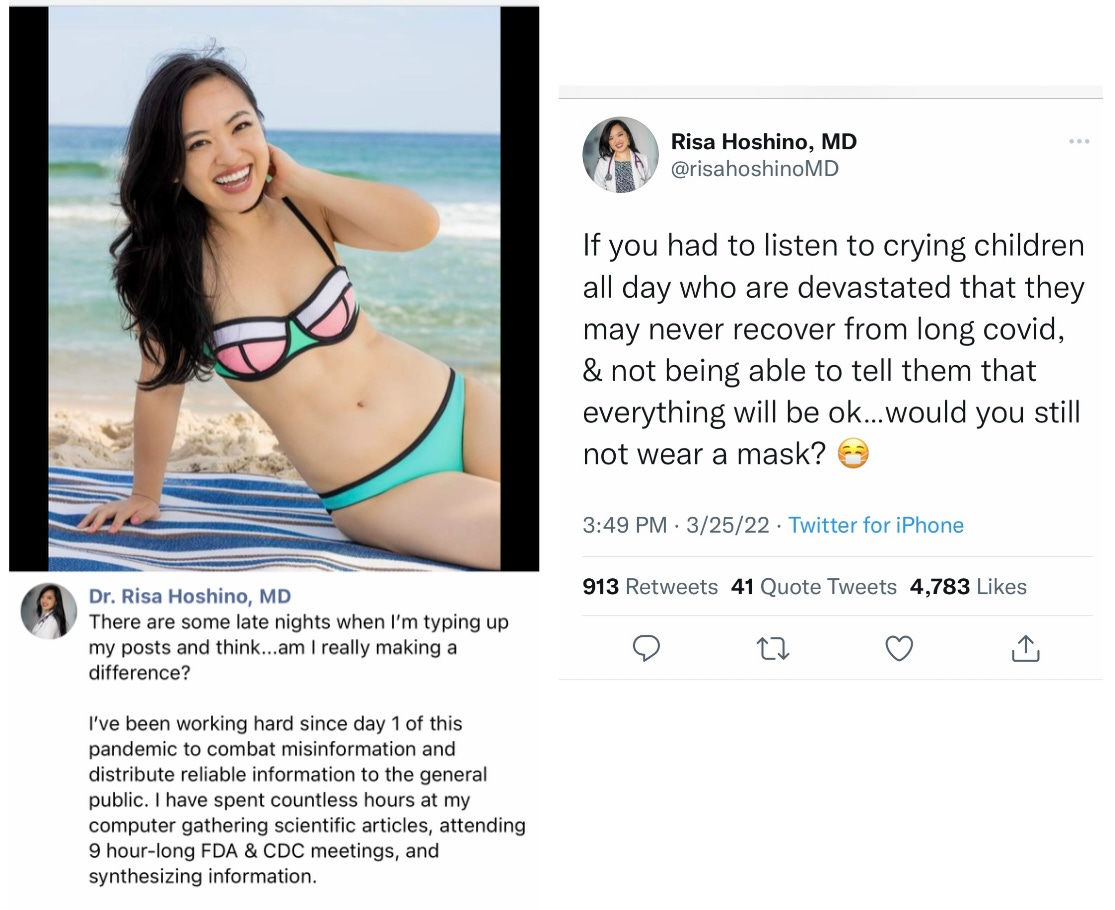
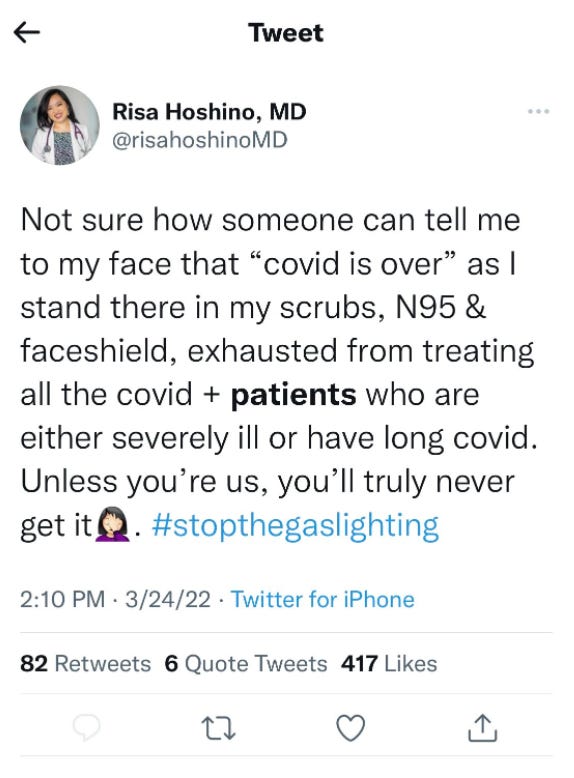
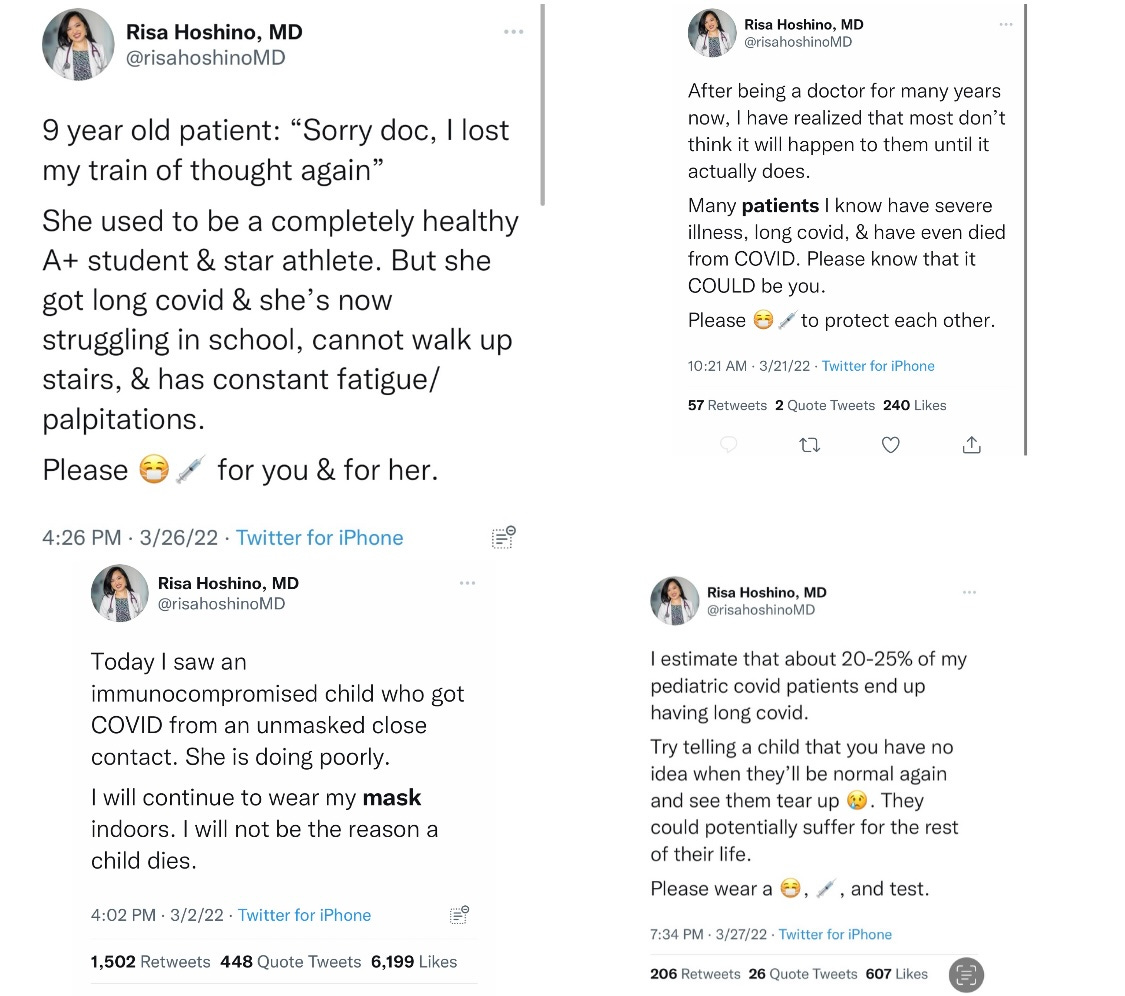
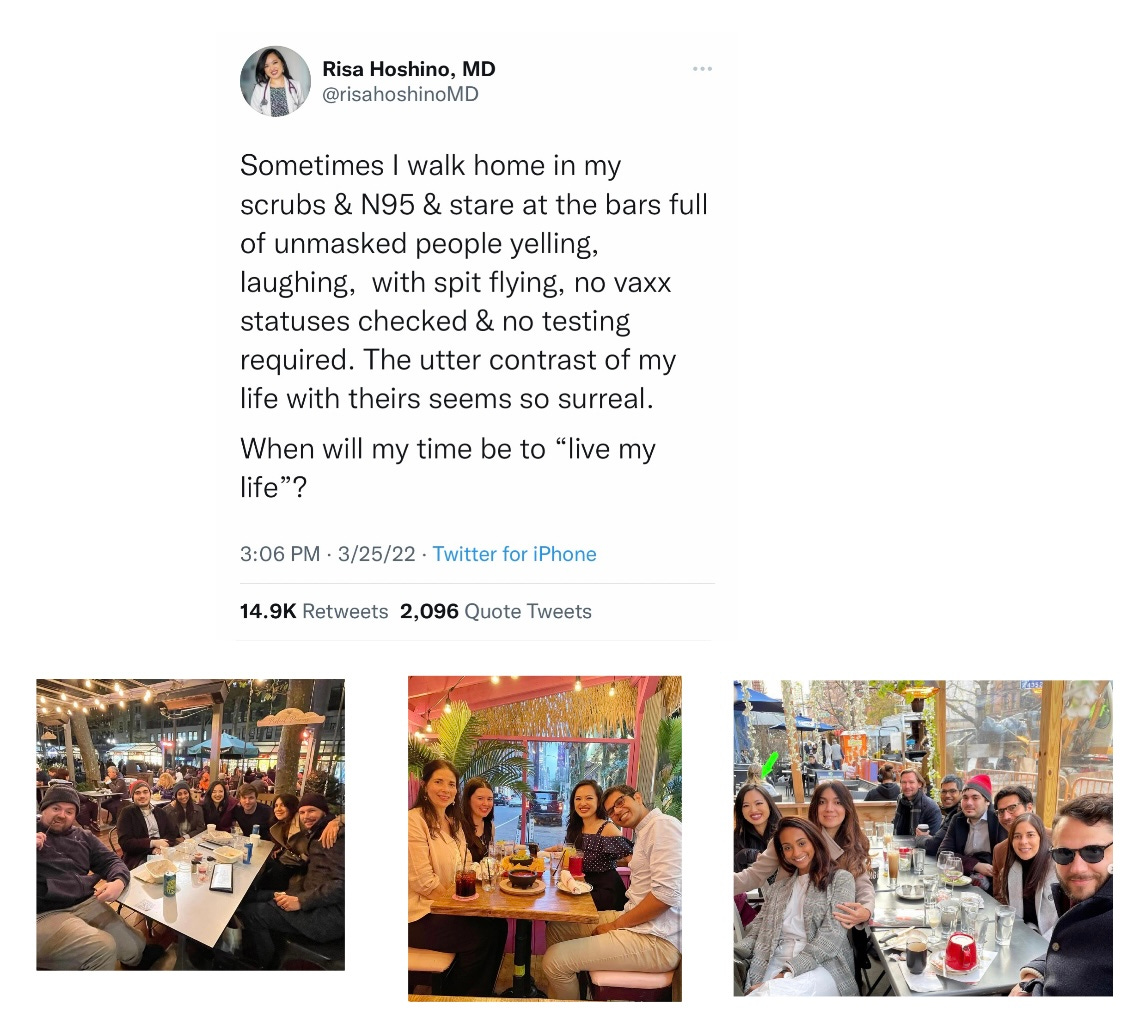
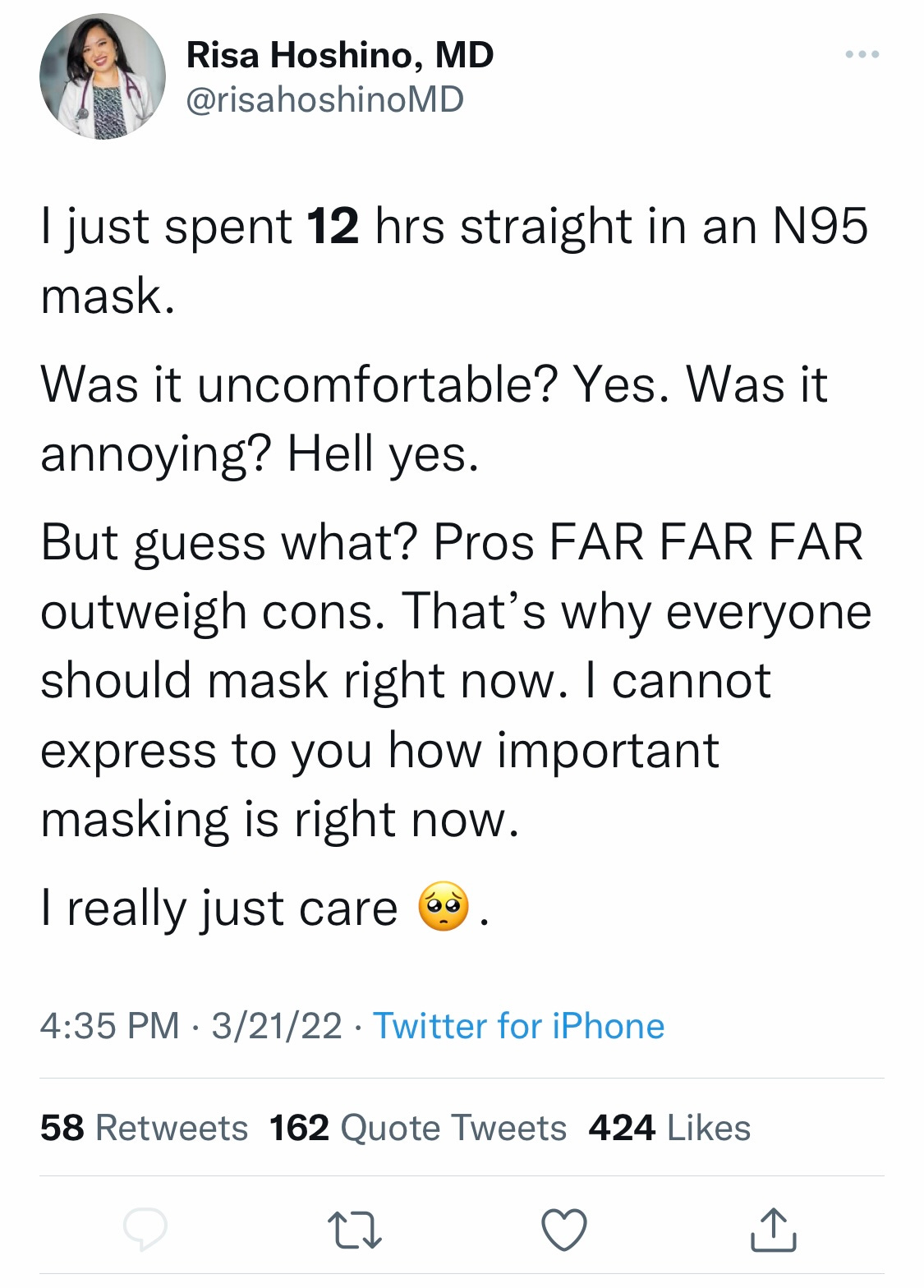
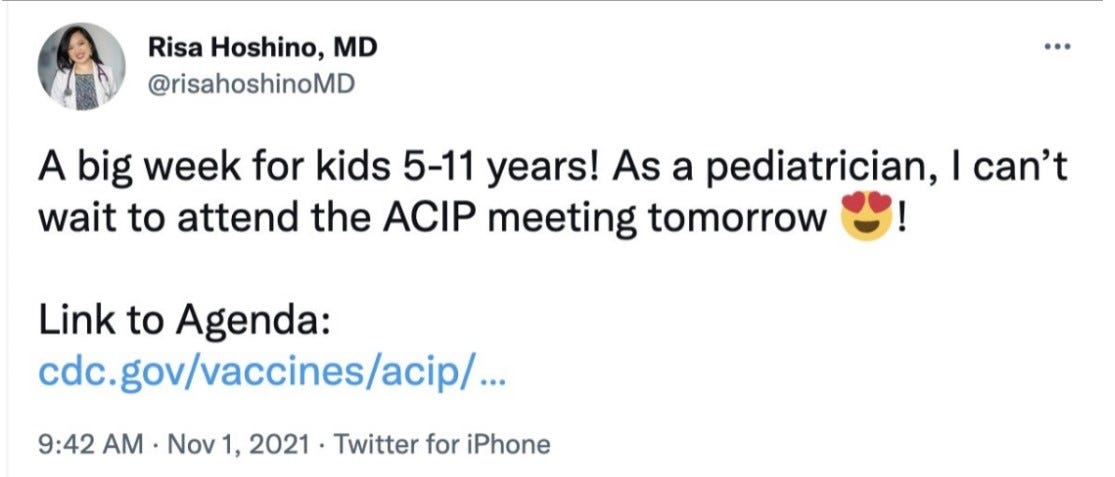
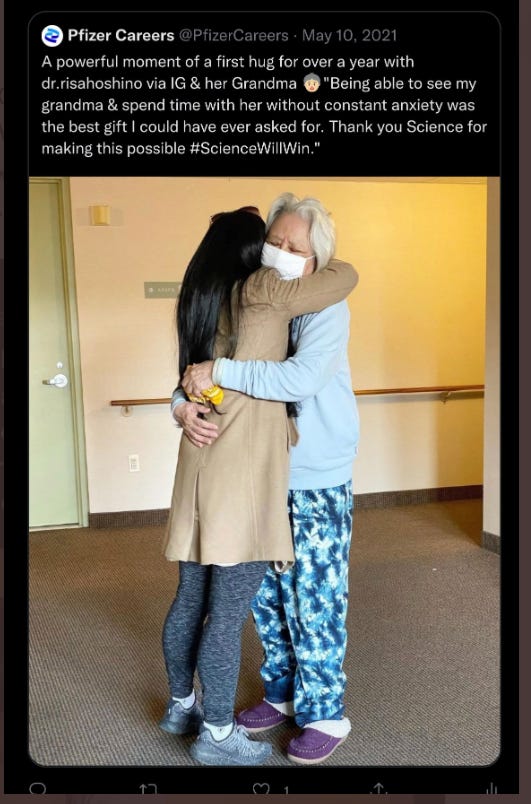
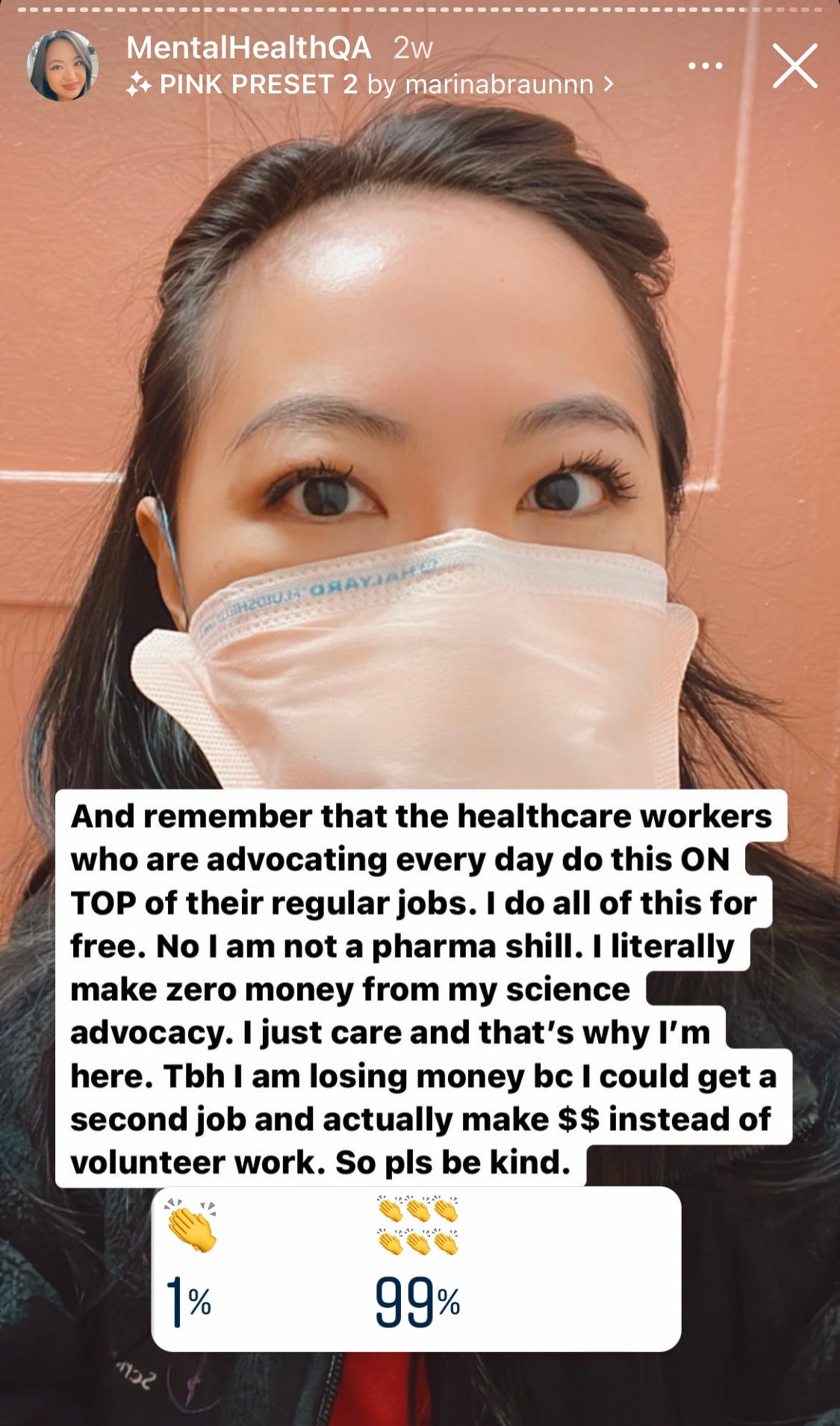
Comments
Post a Comment